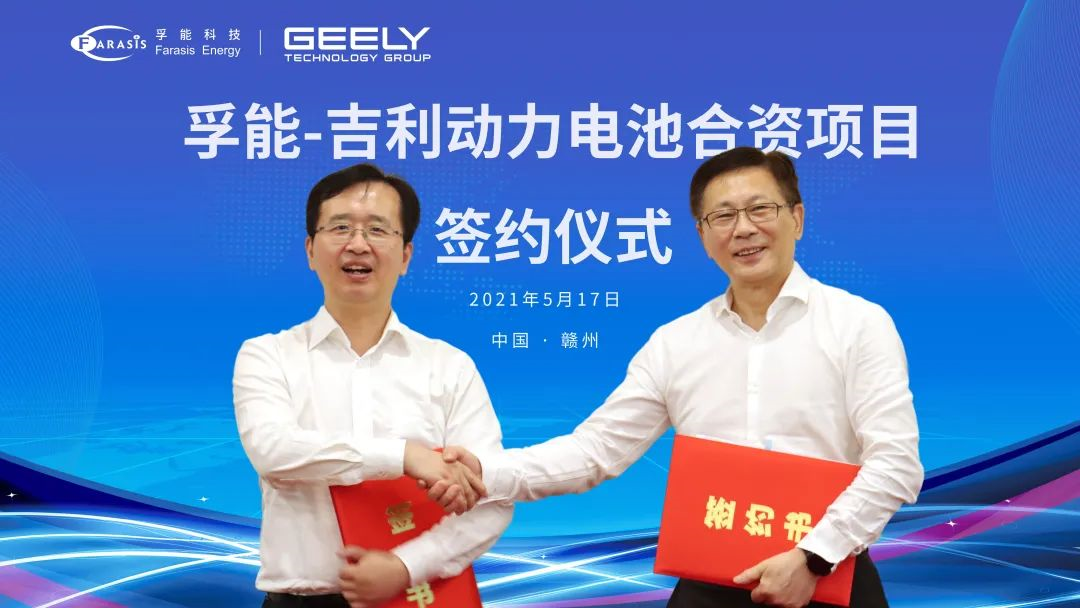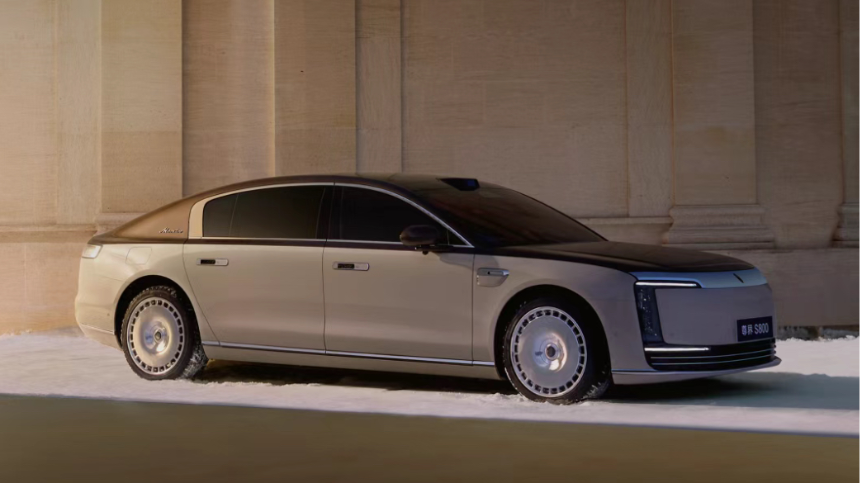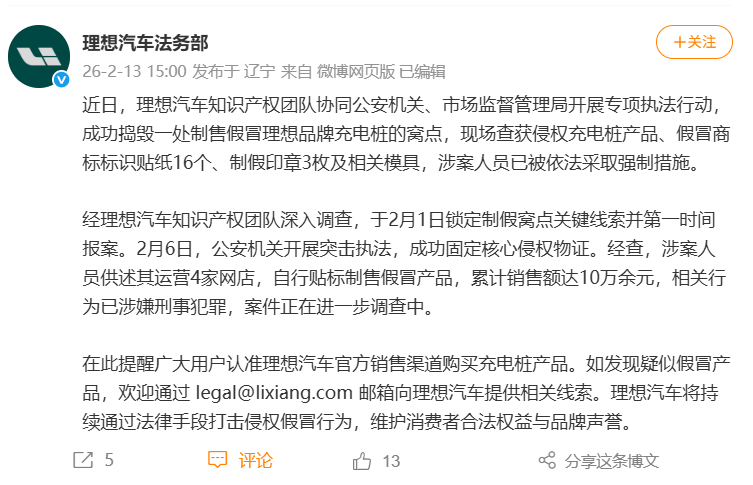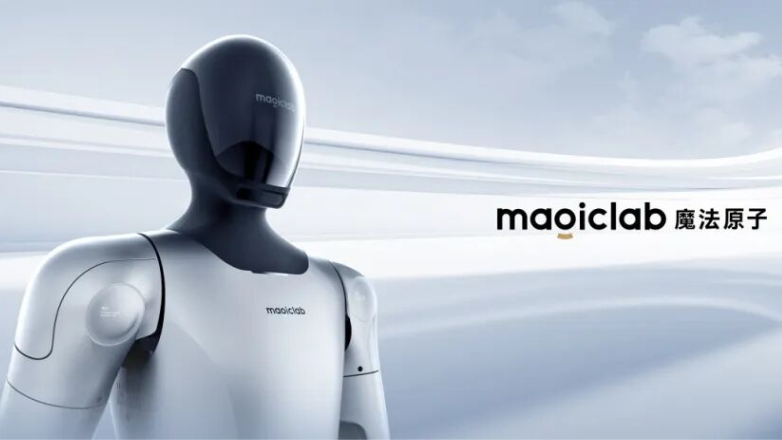Shanghai (Gasgoo)- Farasis Energy (Ganzhou) Co.,Ltd. (“Farasis Energy”), a Chinese power battery manufacturer whose main OEM clients include Mercedes-Benz, announced in mid-September 2021 a decision to raise money for expanding its battery capacity.
According to the statement, the company intended to raise no more than 5.2 billion yuan ($816.468 million) by issuing at most 140 million shares to up to 35 investors. Once the capital is secured, 4.6 billion yuan ($722.26 million) will be plowed in the high-performance lithium-ion power battery manufacturing project and the other 600 million yuan ($94.208 million) would be used as technology reserve fund.

Farasis Energy, the Management Committee of Wuhu Sanshan Economic Development Zone signing agreement; photo credit: Farasis Energy
The aforesaid battery manufacturing project is part of the cooperation Farasis Energy formed with the Management Committee of Wuhu Sanshan Economic Development Zone in late August. Per the agreement, the battery manufacturer plans to build in Wuhu city battery manufacturing lines with an annual capacity of 24GWh per year and relevant supporting facilities.
The program will be carried out in two sub-projects. The first one, which is involved in the aforementioned fundraising, was scheduled to start construction in October 2021 and be completed within 18 months, aiming to form the capability of outputting 12GWh power batteries per year. The second one will be launched at an appropriated time based on both parties’ new agreement and the demands of clients and the market.
Farasis Energy said it would build a new wholly-owned subsidiary in Wuhu to take charge of the construction works.
As one of the world's leading manufacturers of lithium-ion pouch batteries, Farasis Energy provides products for multiple NEV models from such automakers as Daimler, GAC Group, Geely Auto, TOGG, Dongfeng Motor, Jiangling Motors, and Great Wall Motor. Existing plants in its headquarters of Ganzhou, eastern Jiangxi province, and Zhenjiang, eastern Jiangsu province, currently have a combined annual output of 13 GWh, which is expected to rise to 21 GWh by the end of 2021. Besides, the company has also mapped out 8GWh for the third phase of its Zhenjiang base.
Farasis Energy is amid the rapid growth in battery supply orders. The company signed battery supply agreements with its strategic clients Daimler and Beijing Benz at the end of 2018, and later in April 2021, it started the volume production of the power batteries for Daimler's car models.
Last year, Farasis Energy was designated as the power battery developer and supplier to the VOYAH H56 project, a global electric vehicle platform under Dongfeng Motor Group. Besides, it also signed a strategic cooperation agreement with TOGG, a Turkish electric car manufacturer, to provide the latter its power battery solutions and relevant services.
In 2021, the company received the statement of intent which GAC Mitsubishi and Liuzhou Wuling Motors noted they were interested in letting Farasis Energy be their suppliers of power batteries or lithium battery systems.
Due to the existing capacity's inability to meet the demands of its clients and future downstream incremental market and the long construction period for power battery factories, Farasis Energy needs to build new battery production base and improve supply capability to better serve clients and earn more orders, the company said.

Farasis Energy, Geely Technology Group signing agreement; photo credit: Farasis Energy
Apart from building independent battery base, Farasis Energy also works with its client, Geely Auto. In May this year, the company and Geely Technology Group signed an agreement to build a joint venture working on the R&D, production, and sales of lithium batteries, battery modules, battery module management system, charging system, as well as lithium battery cathode and anode materials, electrolyte, and separators.
The joint venture will be 65% and 35% held by Geely Technology Group and Farasis Energy respectively. After its foundation, it will gradually invest in and build NEV battery manufacturing bases in accordance with Farasis Energy’s capacity demands. The combined battery capacity of Farasis Energy and the joint venture is expected to hit 120GWh, 20GWh of which are supposed to be constructed from this year.
Notably, Geely Technology Group broke ground in March 2021 on the first phase of its power battery manufacturing base in Ganzhou, Jiangxi province, eyeing a 12GWh per year capacity. This project is also part of the aforesaid 20GWh program.

SIRO, Turkey Ministry of Industry and Technology signing agreements; photo credit: Farasis Energy
As for overseas deployment, SIRO, the umbrella company that includes Farasis Energy and TOGG, struck a pact with the Turkey Ministry of Industry and Technology in late Oct. to build 20GWh battery manufacturing facilities.
Expected to begin in the second half of 2022, operations at SIRO’s plant will be advanced in two phases: in the first stage, the factory focuses on manufacturing battery modules and packs, using the cells offered by Farasis Energy; production of batteries is the job for the second phase.









